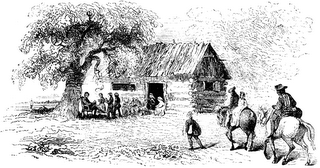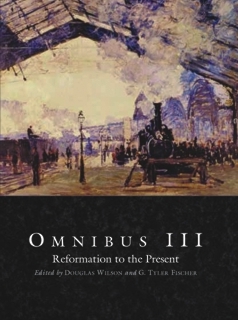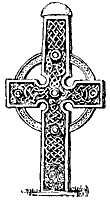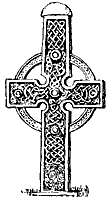
'I advise no one to place his child where the Scriptures do not reign paramount. Every institution in which men are not increasingly occupied with the Word of God must become corrupt...I am much afraid that schools will prove to be the great gates of hell unless they diligently labour in explaining the Holy Scriptures, engraving them in the hearts of youth.'
Martin Luther
This is the first of what I hope to be many posts telling the story of how we came to settle on homeschooling as the best option for the education of our little ones. I also plan to answer some questions and concerns about homeschooling (not that there aren’t many fine resources available for the curious: perhaps I will dedicate an entire post to listing some of these resources).
It began with a desire to come to grips with Scriptural teaching on raising our little ones. Not surprisingly, our first step on this path was the realisation that there was no bloody way we could ever send our kids to the public schools (hereafter, ‘government schools,’ which is more accurate). Why? One of the clearest teachings of Scripture is that
parents, and especially
fathers, are responsible for the education of their own children.
Not the State. Not even the Church, primarily, but parents. Here are the key passages:
Now this is the commandment, the statutes and the rules that the LORD your God commanded me to teach you, that you may do them in the land to which you are going over, to possess it, that you may fear the LORD your God, you and your son and your son's son, by keeping all his statutes and his commandments, which I command you, all the days of your life, and that your days may be long… Hear, O Israel: The LORD our God, the LORD is one. You shall love the LORD your God with all your heart and with all your soul and with all your might. And these words that I command you today shall be on your heart. You shall teach them diligently to your children, and shall talk of them when you sit in your house, and when you walk by the way, and when you lie down, and when you rise. You shall bind them as a sign on your hand, and they shall be as frontlets between your eyes. You shall write them on the doorposts of your house and on your gates. (Deuteronomy 6:1-2, 4-9)
Fathers, do not provoke your children to anger, but bring them up in the discipline and instruction of the Lord. (Ephesians 6:4)
Here the responsibility is given to fathers to teach their children. But that’s just talking about religious teaching, right? Government Schools should teach the important, er, the other stuff, right?
Wrong. The word translated ‘instruction’ in Ephesians 6 is the Greek word
paideia. It was a very familiar word to Greeks, and meant, in essence, an entire life-and-worldview education, including everything from history to art to language to athletics to politics to family life to mathematics and science and philosophy. In our culture, this would also include how we view things like television, movies, and popular music. Everything, in other words. This, the father is to give to his children. This kind of education was not unknown to the classical culture. In ancient Rome, for example, Cato the Elder was known for teaching his son everything from military training to morals and academics. St Paul is saying that fathers should provide the same thing for their children, with this exception: it is ‘the paideia of the Lord,’ so this whole life worldview education should be from the perspective of the Christian faith.
This means that government schools are patently unbiblical, and
never an option for Christians (never!), for how can the State, an agnostic institution, teach our children ‘the paideia of God’? But this also means, unavoidably, that homeschooling is the
best option. Christian schools fill a much-needed place for those who have come to realise that they must immediately get their children out of the government schools, but with Christian schools, fathers and mothers can do little more than occasionally check in on what their children are being taught, since nearly all of the teaching has been delegated to others. This is hardly in keeping with the Scriptural admonition for parents to do this teaching.
There is really no need to answer the expected rejoinder that ‘most parents don’t know algebra, biology, history, Latin, etc, enough to be able to teach them to their children.' Suffice it to say that the curriculum options have rather come of age in recent years, and there are extremely sophisticated options developed with the learning parent in mind, so that the parent can first learn, and then teach.
‘School,’ then, as popularly conceived, was out. Douglas Gresham, stepson of C.S. Lewis, put it wonderfully:
'as someone who has been trained and works in the field of post-childhood abuse trauma, and has devoted considerable thought to the matter, I have formed the opinion that the entire concept of school is flawed. In fact, it is a terrible mistake.
'Look what we do: we observe what God has designed, a pair of parents, one of each sex, and two pairs of grandparents, often with a few aunts and uncles thrown in. In fact, a Family. This is the unit designed by God Himself for the specific purpose and ministry of raising each new generation.
'Then what do we do? We take the child and remove him from this carefully designed support group of parents and close family members, all of whom share a genetic bond with the child, and plunge him into a mass group of his peers, all of whom are as ignorant and as demanding as he is, with one adult stranger supervising. In terms of the psycho-emotional development of the child, this is complete madness…
'Satan hates what God loves and God loves us, Mankind. The basic unit of Mankind is the family, so Satan has targeted the Family, and he has been pretty successful, mostly by using “good intentions.” I think that “School” is one of his very clever inventions. As far as I am concerned, schools are for fish.' (quoted from
http://www.homescholar.org/Lewis%20articles.htm)
I heartily concur with Gresham’s statement and am so glad to have someone of his calibre speaking the truth about this issue.
And so, we are homeschooling our three little ones (all of them, not just the oldest, who is now ‘school age’). This education begins, like life, at conception, and never ends. It involves what R.C. Sproul Jr has called ‘the three Gs’: who God is, what God has done, and what God requires. To accomplish this with the most breadth and depth, and in keeping with the implications of Paul’s ‘paideia of the Lord,’ we are using what is generally known as the Classical method of education. This is an academically rigorous approach to education that responds to children as they naturally develop, and the strengths of the various developmental phases through which they pass on their way to adulthood. My next post on this subject will look more closely at the Classical method, and what it means.
Some will say, ‘is homeschooling legal?’ Or, as it is sometimes put, when someone finds that we are not putting our children in school, or are not operating on the school-year schedule of the government or even private schools, ‘isn’t that against the law?’
Only a few years ago, homeschooling was actually illegal in many states. It is now legal in all fifty states. There are only light regulations for homeschoolers in my state (North Carolina). There shouldn’t be
any, of course. Truly, we no longer have any idea what words like ‘liberty’ or ‘freedom’ mean, or we would never tolerate even the slightest attempt at governmental oversight of our children’s education.
But for now, homeschooling is legal throughout the United States. We as parents choose both the form and content of our children’s education, which is as it should be. We seek to do so in wisdom, weighing our options carefully, determined to make the best use of these precious years. Little children love to learn, and I have no desire to miss even the smallest opportunity to teach them what is true, good, and beautiful. In future posts, I plan to discuss the choices we have made both with regard to curricula, and to schedule. I would encourage every Christian parent reading this to consider carefully, above all, the question of whether to keep their children’s education in the hands of our enemies. A good place to start is Doug Wilson’s outstanding book,
Excused Absence: Should Christian Kids Leave Public Schools? (Crux Press, 2001).









